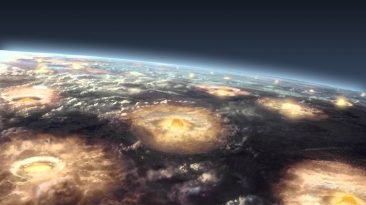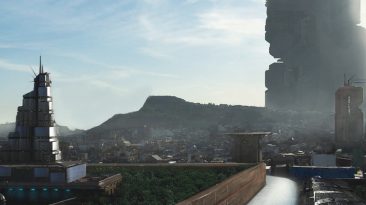“Nearly all men can stand adversity, but if you want to test a man’s character, give him power.” – Abraham Lincoln
Even if the world today is more synchronized and connected than ever before, it’s still a very confusing place. Are you surprised?
There are 7.5 billion people on this planet! And just about everyone has an opinion on how things should be.
But when everyone has a say, it seems we spend so much time talking that nothing ever gets done! Maybe the human race has outgrown democracy. Maybe swift, firm, decisiveness is what we need most right now. Can the world be ruled by one person? How would it work? And who’s best suited for the job?
In Ancient Rome, during times of crisis, a democratically elected senate would sometimes vote to give away their rights! They would appoint a dictator who was given a six-month term of complete unchecked authority to resolve the crisis.
A good example is Lucius Cincinnatus, who was appointed dictator to defeat a military threat. With quick, decisive action, Cincinnatus resolved the crisis, relinquished his power, and returned to his farm within 15 days.
We live in a different time, but maybe some benevolent tyranny is worth a try. The big question is, who’s up to the test?
Who are you most inclined to trust? A seasoned politician? A religious leader? A business mogul? A celebrity?
Or maybe someone who was literally born to rule? But if the Sun never set on your global empire, how would you ever get any sleep?
The first obvious obstacle for one person ruling the world is geography. How do you preside over 7.5 billion people spread over huge landmasses, separated by wide oceans, and living in different time zones?
You’d have no choice but to delegate. It might be easiest to keep all countries and their borders intact, and simply appoint loyal people to govern each of those states according to your policies.
But policymaking would be a headache in itself. How would you design a single set of rules and customs for a world of incredible racial and cultural diversity?
And then, once you’ve drafted these policies, how would you communicate them to a global population that speaks over 5,000 different languages? Another challenge would be consolidating your power upon taking office.
The world would never be able to agree on one ruler, and any forceful attempts to seize control would be met with heavy resistance. We’d soon find ourselves caught in the middle of one massive worldwide battle royale.
And with the stakes so high, the contestants would resort to any means necessary. Considering we live in a heavily militarized world – and by “heavily militarized,” I’m referring to the 14,500 nuclear weapons held by just 9 different countries – it’s more likely that a showdown for world supremacy would result in no world left at all.
At the end of the day, the world is just too big to be ruled by one person. Physical distances and ethnic and cultural diversity make it difficult; the universal drive for self-determination makes it impossible. Or does it?
In 2019, the world entered its 13th consecutive year of global democratic recession. And for the first time since the late 1800s, autocratic countries have a combined GDP that’s greater than that of Western liberal democracies.
Many political scientists believe that the recent rise of populism is a threat to democracy, reflecting the idea that people might happily trade their personal freedom for comfort and security. But if it seems that democracy is in decline, remember that you still have a say, and by doing your part, you can help turn the tide. Read up on current events, vote responsibly, and keep your leaders in check!
Subscribe to What-If on Youtube or follow the show on Facebook Watch.
Sources
- “Despotism”. 2019. en.wikipedia.org. Accessed September 18 2019.
- “The One-Man Rule: What May Happen When Only One Person Has The Power To Destroy Humanity”. 2019. jp.Senescence.info. Accessed September 18 2019.
- “What would happen if only one person ruled the world?” 2019. quora.com. Accessed September 18 2019.
- “Which person has come closest to ruling the entire world?”. 2019. answers.yahoo.com. Accessed September 18 2019.
- “World Population Clock: 7.7 Billion People (2019) – Worldometers”. 2019. worldometers.info. Accessed September 18 2019.
- “There Are About 14,500 Nuclear Weapons In The World. Here Are The Countries That Have Them”. Macias, Amanda. 2018. CNBC. Accessed September 18 2019.
- “Chemical And Biological Weapons Status At A Glance | Arms Control Association”. 2019. armscontrol.org. Accessed September 18 2019.
- “Nuclear Weapons: Who Has What At A Glance | Arms Control Association”. 2019. armscontrol.org. Accessed September 18 2019.
- “The Dictators’ Last Stand”. Yascha Mounk, 2019. Foreign Affairs. Accessed September 18 2019.
- “The Most Successful Dictators Of The Past Century “. Gus Lubin and Vivian Giang, 2019. Business Insider. Accessed September 18 2019.


























